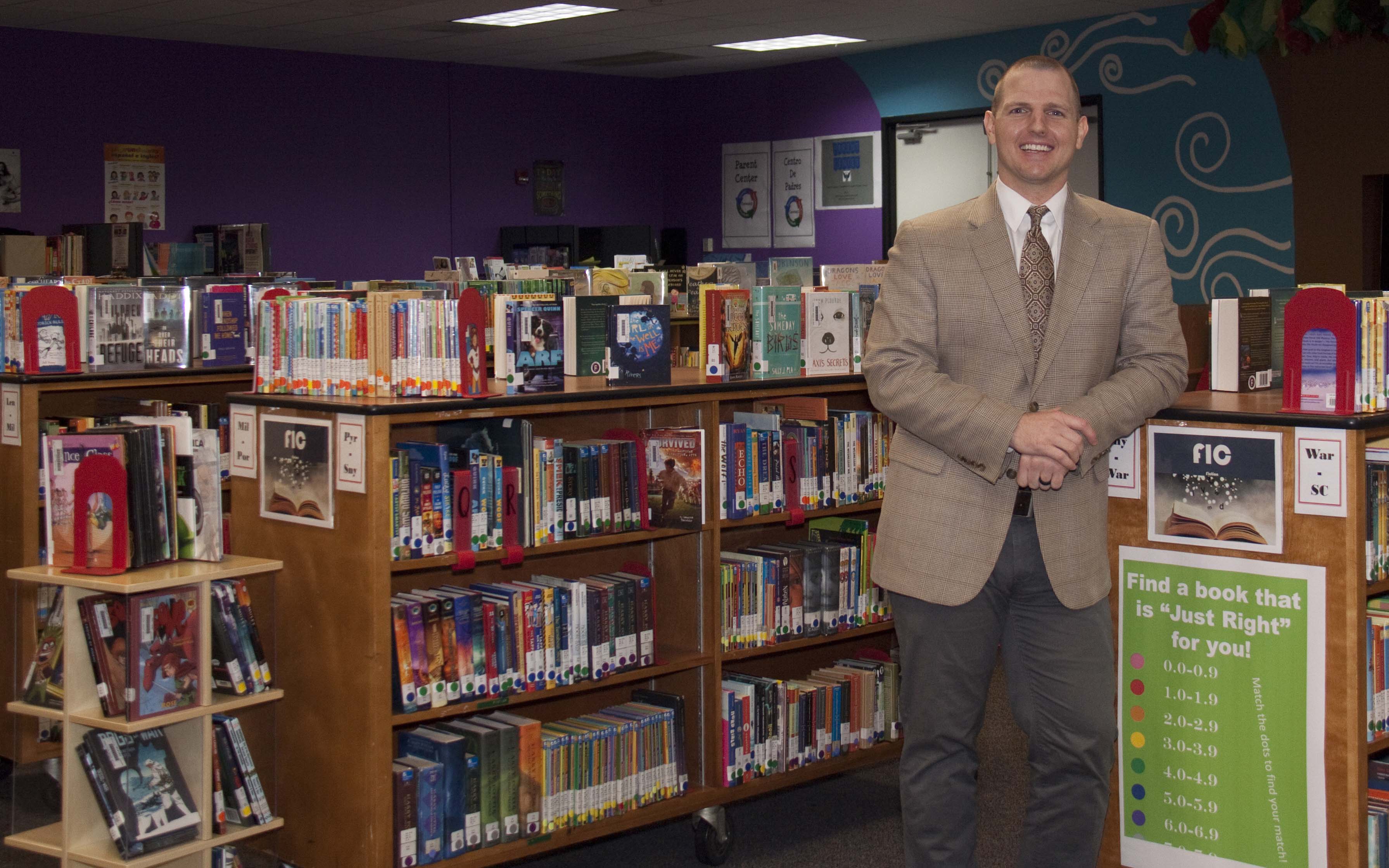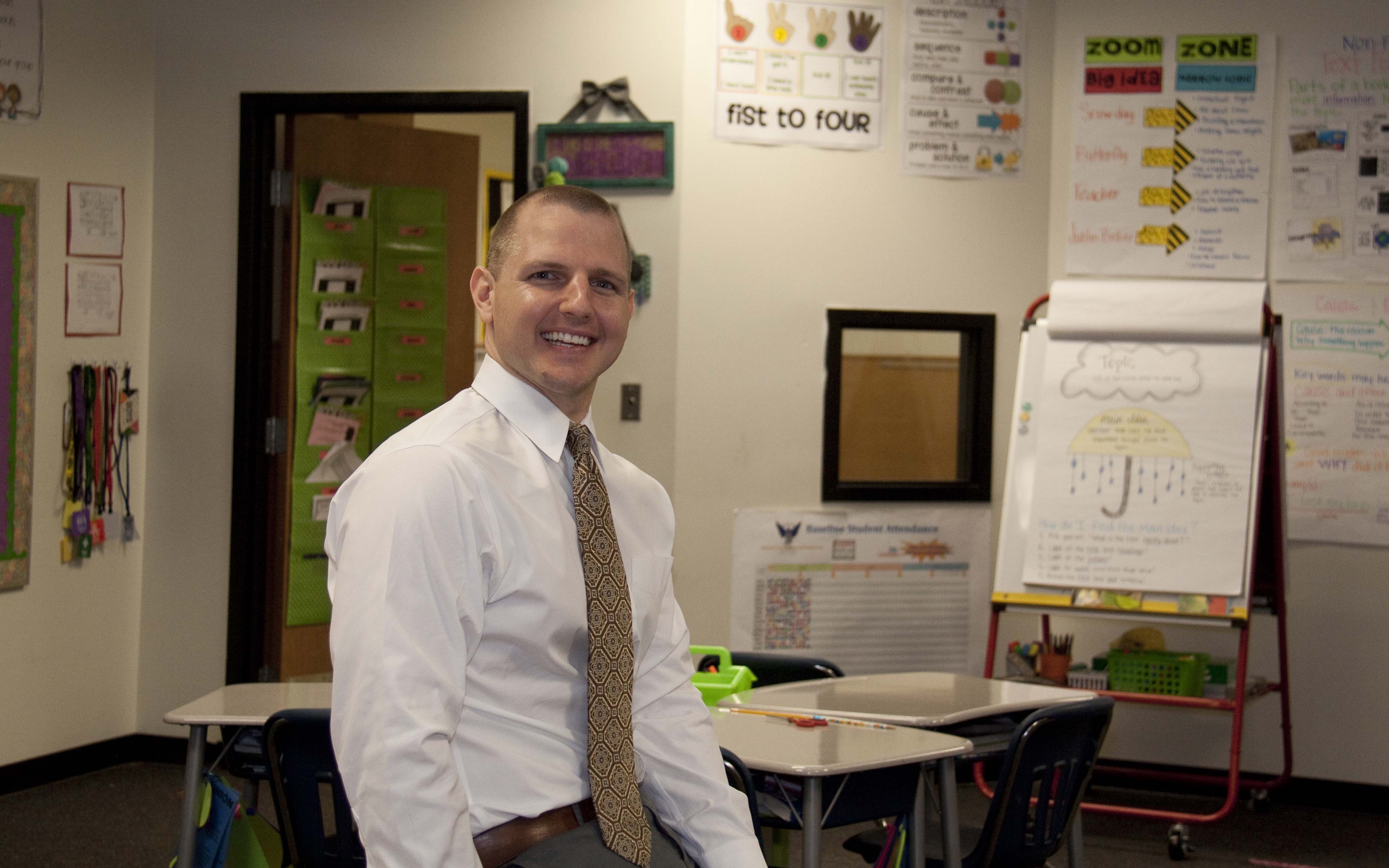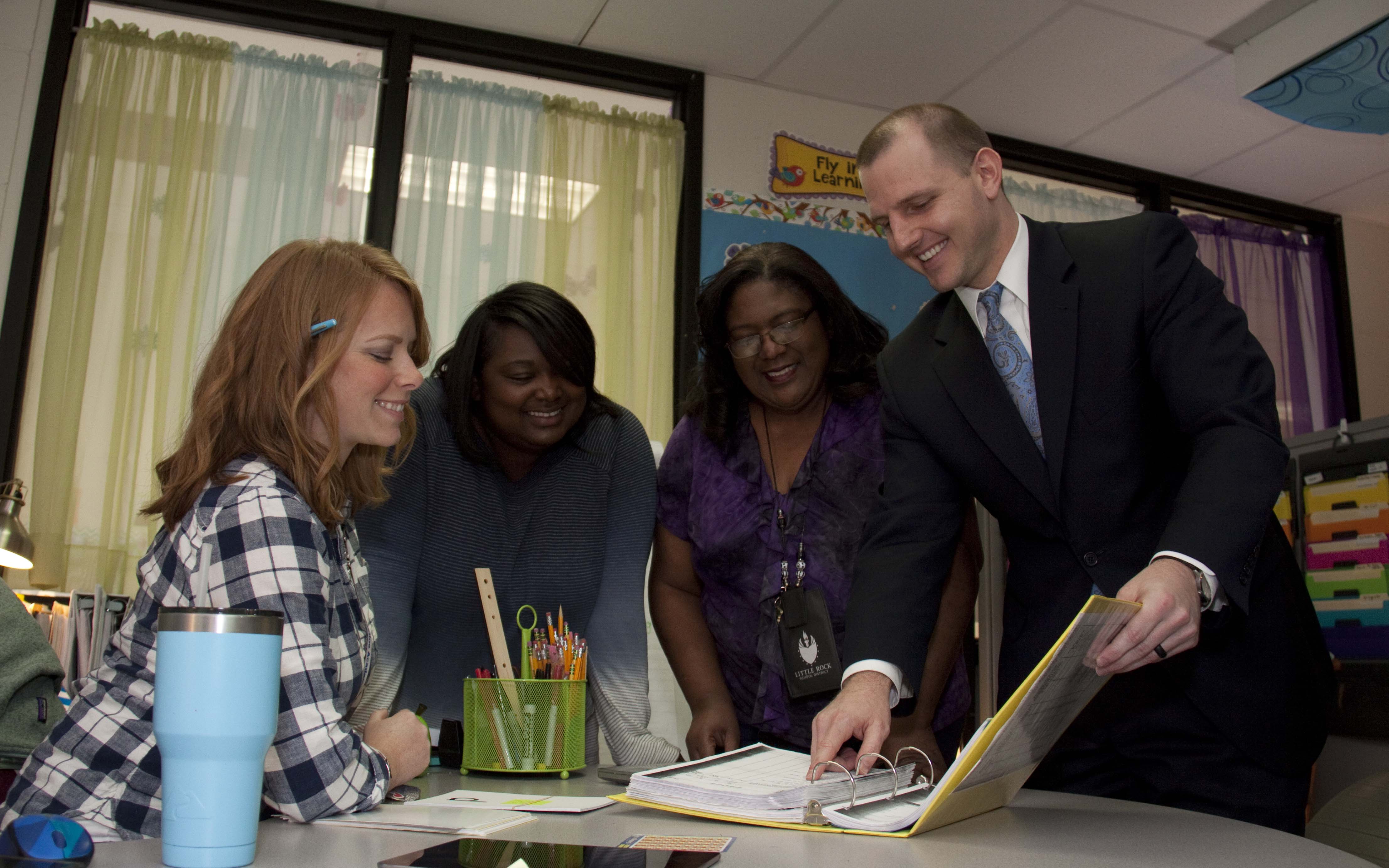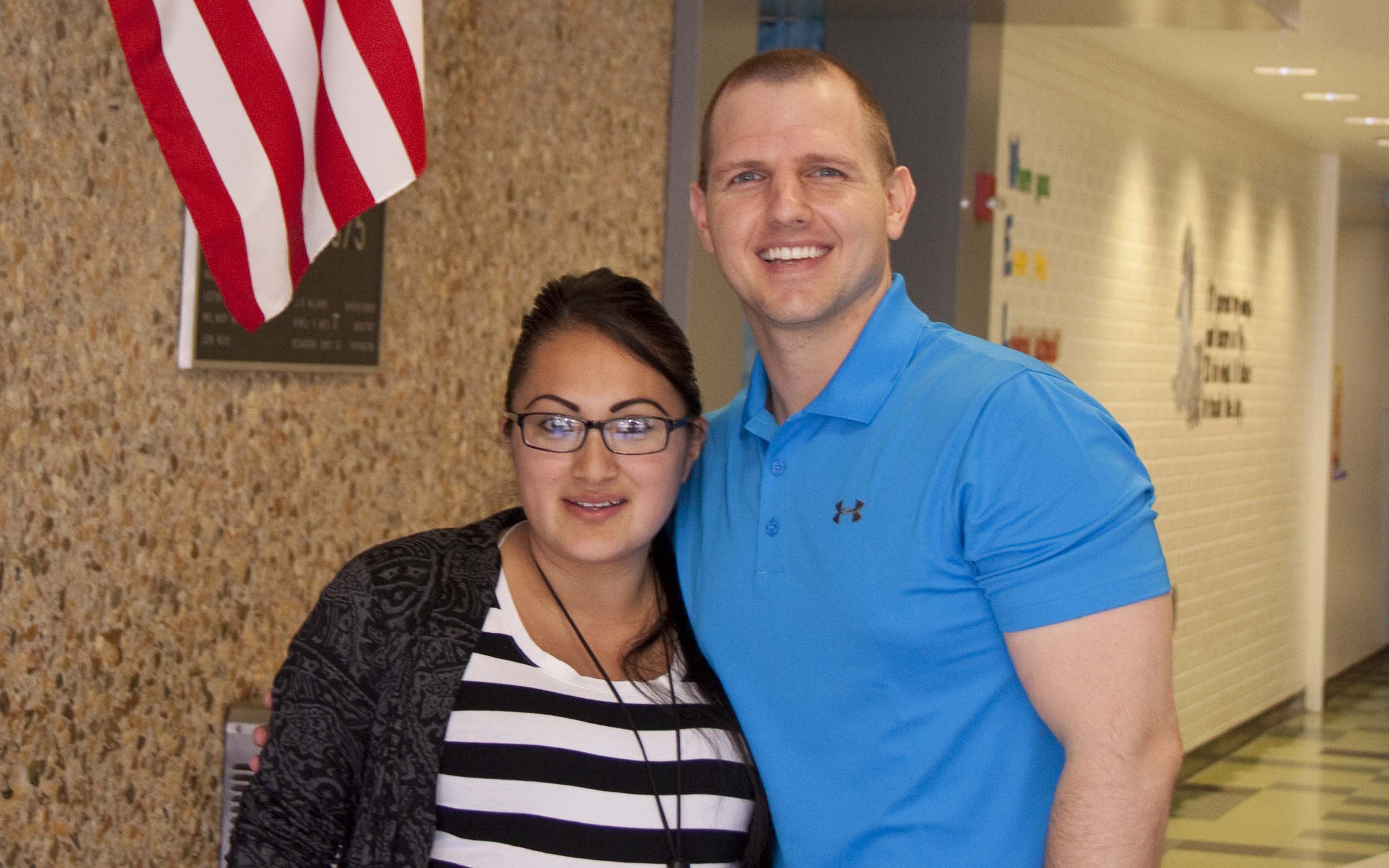From the bottom to the TOP OF THE CLASS
July 9-15, 2018
By Alyx VanNess
From the cotton mills to the classroom
A third generation cotton mill worker and first generation college graduate, Jonathan Crossley didn’t originally set out to work in education.
“I was on the doorstep of graduating college, working in D.C. for the U.S. Attorney’s office and realized that the people that made the most impact on my life were teachers,” he says. “The direction I really wanted to go in was to become a teacher and coach.”
The decision to change his career path landed him in Palestine, Ark., as a Teach for America candidate, where he quickly got to work. Crossley says that while his students’ test scores and grades needed to be addressed, more importantly there was “a basic fundamental need of believing in themselves academically and socially, believing that they can achieve, believing that it’s possible.”
His work in Palestine not only garnered him student and community support, but earned him the Arkansas Teacher of the Year award in 2014. Only 26 years old, he was the youngest educator to hold that honor. For some teachers, this award signifies the peak of their life’s work; for Crossley, he was just getting started.
In 2015, he set his sights on something bigger, applying for Baseline Elementary’s Principal position in Little Rock.
“It was the only job I applied for in administration. It was the only one I wanted,” Crossley says.
Although he had never worked in administration before, he was chosen by the Little Rock School District to lead what was then the only elementary school classified as academically distressed in the district. With three years of low performance on state benchmark exams, the school needed a leader with a strong vision; Crossley says it was that vision, coupled with his passion and perseverance that landed him the position.
Crossley remembers those first few weeks as chaotic. The district’s decision to hire him came late in the summer, giving him little time to prepare for the upcoming school year.
“I had about three weeks to hire somewhere around 44 people,” he explains. “Three weeks to create a professional development plan, a structure for how it would be rolled out, to plan what the school day would look like. It was nuts.”
Despite the chaos, Baseline Elementary – renamed Baseline Academy – opened its doors that fall. Crossley says the students’ reactions were immediate.
“Students were walking around with shiny eyes, excited to come to school,” he says. It was then that he knew he was onto something.
Looking back and moving forward at Baseline Academy
It’s been three years since Crossley first stepped foot in Baseline as Principal, and he’s not only excited about what’s been accomplished so far, he is hopeful for what’s to come. He says one of the biggest successes at the school has been the increase in parent and community involvement.
“As the Principal at Baseline, I’ve been able to lean into really getting out into the community, bringing parents in, and showcasing students in a way that excites parents,” Crossley explains.
During the first parent night in 2015, there were less than 100 who attended; now, he says this year’s events have seen over 400 parents show up.
“We cater to a community where many of our parents work,” says First Grade Teacher, Perla Andrade. “This past year, I had about 88 percent of my parents show up to parent-teacher conferences.”
But the school’s involvement doesn’t stop there. Baseline Academy approaches education generationally, giving back to their parents in a variety of ways. Through their partnerships with organizations including Goodwill Industries International, The Little Rock Junior League, the Little Rock Police Department, the Y41 group, and the AR Read program, Baseline has coordinated and hosted multiple job fairs, job trainings, and supply drives for both students and their families.
Vice Principal, Pamela Freeman, explains, “A school cannot function successfully on its own without the support of the community.”
Baseline has also worked on building stronger relationships through the National Night Out initiative. Events including the Museum of Discovery’s Science Night and a Black Panther viewing and discussion have bridged the divide for parents to feel informed, involved, and most importantly needed in their child’s education.
“Our parents and families often view the family nights and events we host as the event of the month! They bring their whole family and engage in the activity,” says Special Education Teacher, Jessie Lapham.
Still, it’s the smaller things that have made the biggest impact.
“I made a decision which sounded almost trivial to begin with, but I saw a vision of putting our translator-interpreter at the front of the school,” Crossley says. “So I created a desk and office space for her at the very front of the school and parents come in and get their needs met. It’s changed the perception for many of our Latino and Latina students because they come in and their parents see that we actually value communication and their experiences.”
Crossley believes that seemingly minute changes like this one significantly impact the way parents and community members connect with their neighborhood elementary. He says it comes from a place of respect and a simple but unwavering belief.
“Parents are sending us their very best every day. I understood that as a teacher in Palestine and I understand that as a principal at Baseline.”
Within the classroom, teachers have begun writing positive referrals for students who display the school’s core values and reading them over the intercom during morning announcements.
“When I acknowledge the positivity in this way, calling out the students who are being a good family member, being a leader, their peers often take notice, too. It’s quite powerful when peers see each other as a leader or taking time to empower one another,” says Lapham.
For the upcoming school year, Baseline is working on several new programs. One dubbed Parent University will situate the school as a hub for the community, addressing various topics of interest to community members.
“We will offer a course selection that will include financial literacy, supporting reading at home, parenting skills, and even fun things like cooking and yoga,” Freeman says. “We hope this will allow us to continue connecting with our parents while providing them with ways to support their students at home.”
Baseline will also create space for parents to come and work on site and to plan parent involvement and outreach. The school hopes that by giving parents space on campus, it will further increase parent involvement in a way that is sensitive to the needs and wants of the parents themselves.
Crossley explains, “The real next step is making sure we have a way for parents to be invested in the work and do the work.”
It starts with teachers
“One thing I have found to be really vital in any improvement effort is this idea of agency versus advocacy,” Crossley says. “Many of us like this idea of being an advocate, but the next level of that, in my mind, is agency building where you help people understand the power of their voice that they already have and let that guide improvement efforts. That starts with teachers.”
Crossley looks to the educators and professionals in his building to create successful systems for Baseline.
“He knows how to reach out to staff members with expertise in that area to help create a system that builds on what works,” explains Lapham.
From collaborating and creating core values to developing professional development and having time at the end of the school day to develop passion projects, teachers are given more autonomy both in and out of the classroom.
“As teachers, we are taught to scaffold for our students to meet their academic needs. This is a great start, but what about when you have kiddos that have needs outside the educational piece? At Baseline, we are able to take the time to reach out and try to meet those needs as well,” says Andrade. “We are trusted to do what is necessary to meet our kiddos where they are at and help them progress to where they need to be.”
A culture of love
Like puzzle pieces, each decision Crossley and his staff at Baseline have made is to better their students’ lives and the lives of every person that student touches. Through their inter-generational approach which brings the family and community into the classroom, a certain kind of culture has been carefully crafted that in time, becomes reciprocal.
Andrade explains it best. “The culture that has been created at Baseline has taken some work. Nonetheless, it is a culture of respect, appreciation, perseverance, but most of all, love. Outpouring love for our students, our families, and ourselves,” she says. “When you spread joy, it becomes a domino effect. Administration spreads it to us, we ‘feed’ it to our kids, our kids take it home to their families, and our families bring it right back to us, while also spreading it to the community.”
PHOTO CAPTIONS
1. A third generation cotton mill worker and first generation college graduate takes a distressed school from the bottom to top of the class. A large part of success, says Principal Jonathan Crossley, is parent and community involvement. (Photos by Valerie Nichols)
2. For the past three years Principal Jonathan Crossley has been hard at work at Baseline Academy. One of his main goals – to garner parent involvement – has been achieved with flying colors and it shows.






